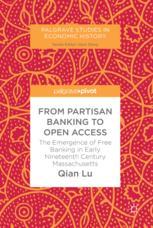

Most ebook files are in PDF format, so you can easily read them using various software such as Foxit Reader or directly on the Google Chrome browser.
Some ebook files are released by publishers in other formats such as .awz, .mobi, .epub, .fb2, etc. You may need to install specific software to read these formats on mobile/PC, such as Calibre.
Please read the tutorial at this link: https://ebookbell.com/faq
We offer FREE conversion to the popular formats you request; however, this may take some time. Therefore, right after payment, please email us, and we will try to provide the service as quickly as possible.
For some exceptional file formats or broken links (if any), please refrain from opening any disputes. Instead, email us first, and we will try to assist within a maximum of 6 hours.
EbookBell Team

0.0
0 reviewsHow did banking in early nineteenth-century Massachusetts evolve? Lu provides a compelling narrative about the connection between inclusive political systems and open access economies, hypothesizing that entry into banking was firstly made upon partisan grounds before later becoming open access/free entry. Lu investigates state level institutional change and studies the transition to open access from an economic perspective. What was the relationship between banking and political elites? Why were elites, who enjoyed privileges under dominant institutions, willing to dissolve these institutions and eliminate their privileges? The author provides new insights into American economic history, explaining how a society moves from limited access to one of openness.